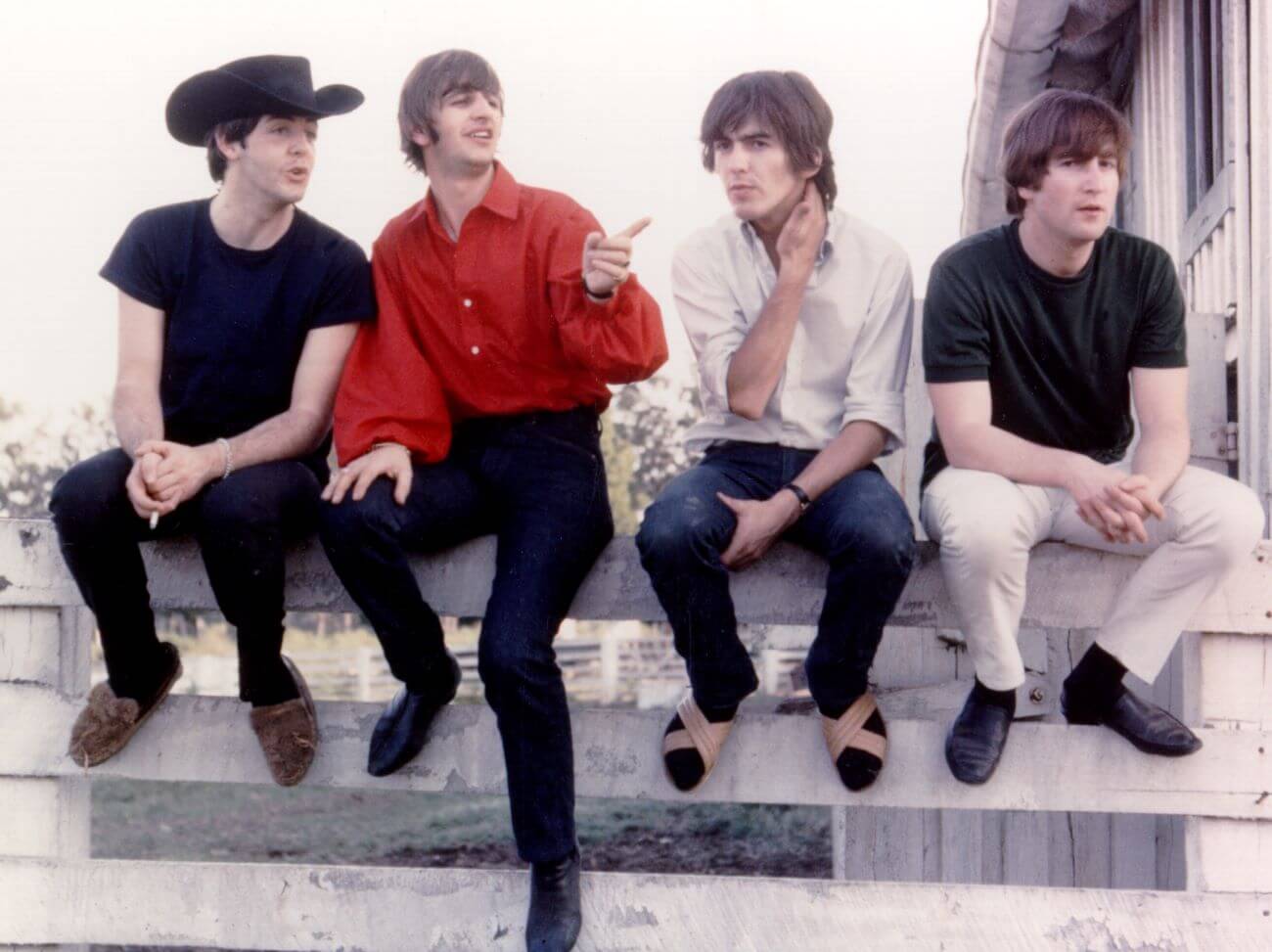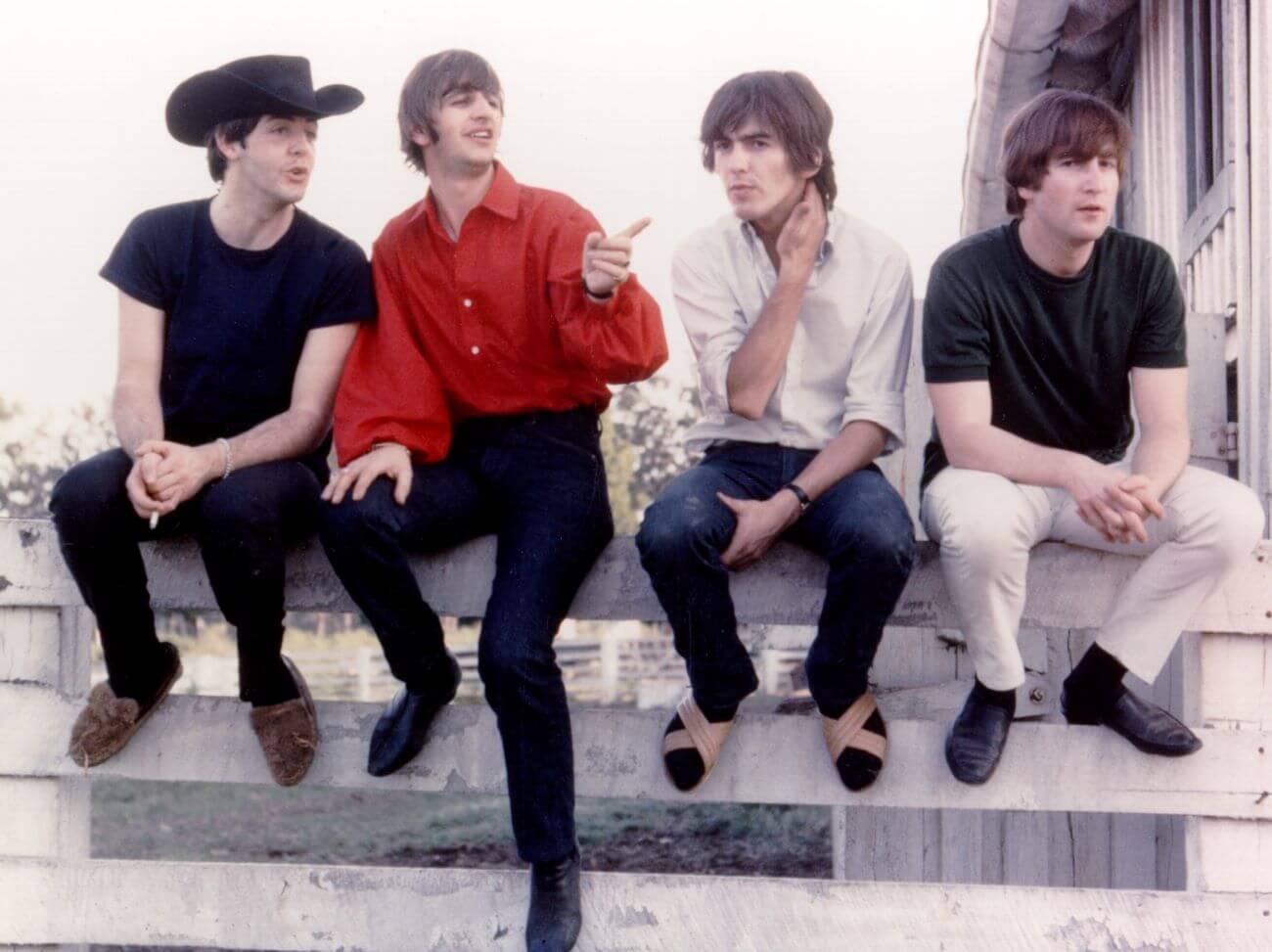
7 of the Best Uses of Beatles Songs in Movies and Television
When a Beatles song appears in movies and television shows, it usually means that the production paid a good deal of money for the right to use it. The Beatles have maintained such a powerful influence on popular culture that the weighty price tag is typically worth it. Here are seven perfect uses of Beatles songs in movies and television.

1. ‘With a Little Help From My Friends’ in ‘The Wonder Years’
One of the most prominent examples of a Beatles song in popular culture is “With a Little Help From My Friends” in The Wonder Years. The show uses Joe Cocker’s version of the song over the opening credits. According to actor Dan Lauria, Paul McCartney pushed Apple Records to let the show use the song. They agreed, as long as it was Cocker’s version (via Mel Magazine).
The song was a perfect fit for The Wonder Years. Cocker’s version has the ideal amount of nostalgia for a show about friendship and growing up.
2. “Here, There and Everywhere’ in ‘Friends’
In the tenth season of Friends, “Here, There and Everywhere” plays in the episode “The One With Phoebe’s Wedding.” The rendition of the song is played on steel drums as Phoebe walks down the aisle.
The cover of the love song is beautiful and feels perfectly attuned to Phoebe’s character.
3. ‘Happiness is a Warm Gun’ in ‘Bowling for Columbine’
Michael Moore’s documentary Bowling for Columbine looks into the shooting at Columbine High School and other acts of gun violence in the United States. Roughly 20 minutes into the film, “Happiness is a Warm Gun” plays over a montage of people buying and shooting guns along with footage of violence and death.
The violent footage itself is troubling, but the song on top of the montage makes it unforgettable. Because of this, it is one of the most well-known parts of the documentary.
4. ‘Baby, You’re A Rich Man’ in ‘The Social Network’
At the end of The Social Network, Mark Zuckerberg, played by Jesse Eisenberg, sits alone and sends a friend request to his ex-girlfriend. As he constantly refreshes the page, “Baby, You’re A Rich Man” plays, and onscreen text updates the viewer on the real-life status of the characters and the company.
The song is the ideal summation of the film. At the start of each verse, the band asks, “How does it feel to be/one of the beautiful people.” The Social Network uses the song to make the case that for all his success, Zuckerberg is deeply alone.
5. ‘Hey Jude’ in ‘The Royal Tenenbaums’
An instrumental cover of “Hey Jude” by The Mutato Muzika Orchestra plays over the beginning of The Royal Tenenbaums. The prologue to the film introduces the Tenenbaum family while Alec Baldwin narrates.
The whimsy of the cover perfectly fits the film’s tone and helps to establish the complicated relationships between the family members.
6. ‘Come Together’ in ‘A Bronx Tale’
In the 1993 film A Bronx Tale, “Come Together” plays over a bar fight scene between a bike gang and members of the Mafia. After repeatedly asking the bikers to leave, Sonny, played by Chazz Palminteri, locks the doors and starts a fight.
While “Come Together” is playing, the fight feels both chaotic and thrilling. When a character hits the jukebox, and the song switches off, though, the violence of the brawl feels heavier.
7. ‘Tomorrow Never Knows’ in ‘Mad Men’
Mad Men made headlines for paying $250,000 to use “Tomorrow Never Knows” in the show’s fifth season. At the end of the episode, Don Draper sits down with a drink to listen to the track from Revolver. Shortly into the song, he stands up and stops the record. He leaves the room, and the show cuts to black.
As the credits roll, though, the song comes back at full blast. The song is innovative and psychedelic, mirroring youth culture and Draper’s unwillingness to keep up. By loudly continuing the song after the credits, though, the show demonstrates that change is inevitable.


